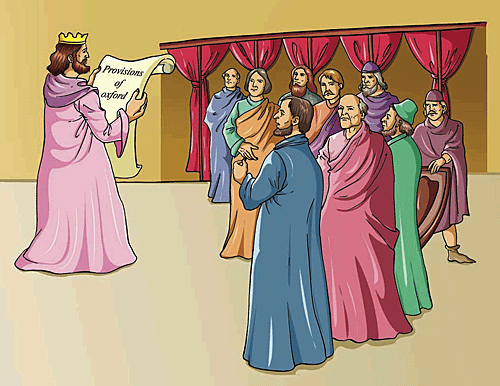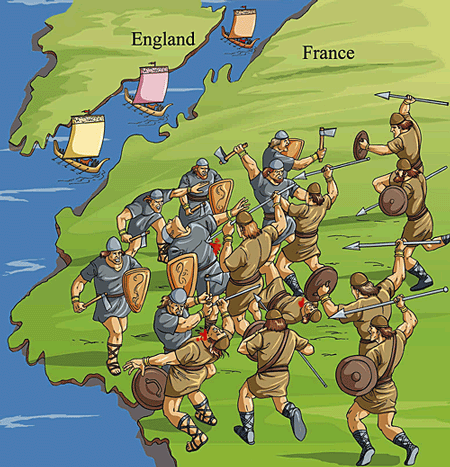English and Its Historical Development, Part 20
(English was re-established in Britain)
A series of events accelerated the spread of English during the 12th to 14th centuries
During the thirteenth century certain events of history combined to lift the English language from its humble estate as the vernacular of a conquered people and to impel it on its slow climb back to ascendancy as the national tongue.
By mid-century a large proportion of the nobility no longer thought of themselves as Normans but essentially, and politically, as English.
The slogan was "England for the English" and the outcome was a linguistic, as well as a political, victory for the English because Henry III was forced to agree to the appointment of a commission for reform of the government whose proposals were embodied in the "Provisions of Oxford".
Provisions of Oxford, 1258
The king accepted the provisions in a historic proclamation issued in English, French, and Latin; the first official document to include the English language since the Norman Conquest.

Devotion to England and its ancient vernacular now developed such strength that Henry's son, the great and energetic Edward I, was able to rally the support of Parliament in 1295 for war against France by declaring that it was Philip's "detestable purpose, which God forbid, to wipe out the English tongue."
Hundred Years' War, 1337-1453

In 1337-1453, during the Hundred Years' War, French became the language of England's enemy.
The Black Death, 1348-1350

In 1348-1350, the Black Death cut the population of England by almost half, causing serious labor shortages. As a consequence, the importance of the working classes, of artisans and craftsmen, was greatly enhanced; wages increased and the resultant ascendancy of the yeoman in the country and the bourgeois in the town; both of whom only spoke English, further abetted the use of the native tongue.
Hundreds of Latin and French teachers and scholars died during the Black Death plague

Faced with a lack of academicians versed in French and Latin, many schools resorted to English as a common medium of instruction. By 1385, the practice became general, and even universities and monastic institutions started to conduct their curricula, or academic courses, in English.
The emergency action induced by the Black Death engendered an educational reaction. Alarmed by the decline in what today would be called "language skills", school-masters prepared and published manuals and workbooks of French grammar. Oxford and Cambridge enacted statutes (legal decisions) requiring students to construe, or to interpret, and compose in both English and French "lest the French language be entirely disused."
Concerned with the new insularity, or isolation, of English education; Parliament decreed that all "lords, barons, knights, and honest men of good towns," should teach their children French.
The historical significance of these developments lay in the fact that by the fifteenth century, the ability to speak French had come to be regarded as an accomplishment. In schools and universities, French was taught, like Latin, as an ancillary (unimportant) language requisite to the cultural wardrobe of the properly educated person. Government officials who lacked this accessory had to retain on their staffs a "secretary in the French Language". The linguistic balance had shifted forever.
Proceed to Part 21, English period of great literary production.
INDEX or Table of Contents, English and its historical development.
References: sources of information.
